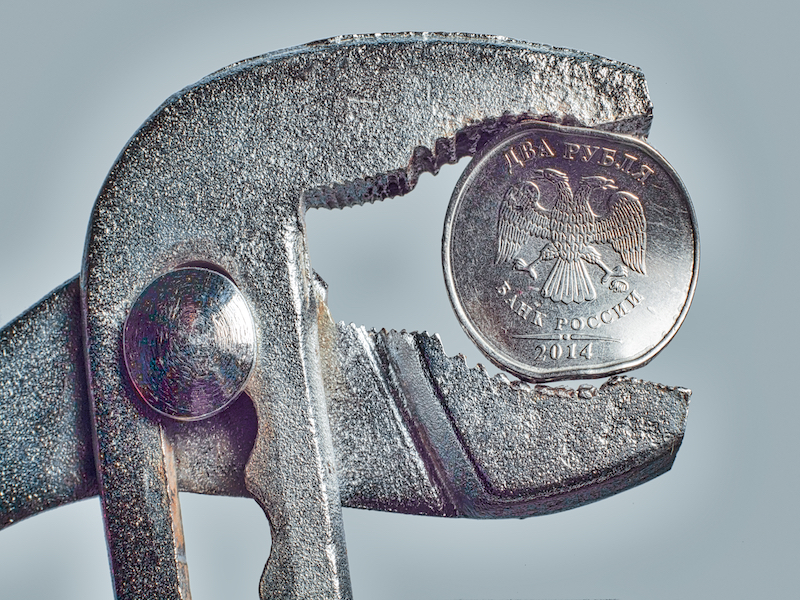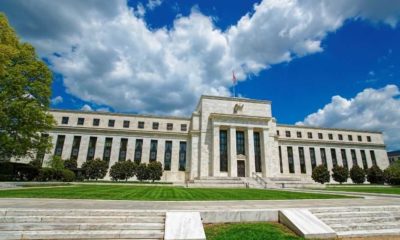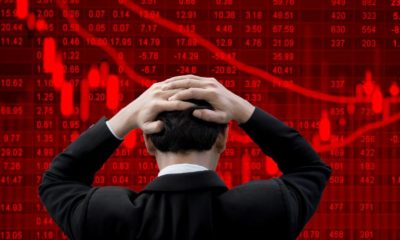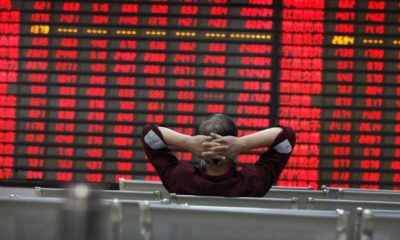bank
Is Inflation Causing Your Cash To Lose Value?

It’s no secret that the federal interest rate is currently at 0.5%, and unlikely to go up in a hurry.
So, can the cash in your portfolio hold its own, or does it need a little help from the magic of diversification?
Cash Can Be an Important Part of Diversification, But Holding Too Much of it for Too Long Can Cost You
First of all, cash is not all bad.
After all, you never know for sure what the market is going to do, and cash is the very definition of liquid.
It can be used to invest, to pay off debt, or to purchase.
Best of all, you always know what it is going to do.
Unfortunately, a lot of what it is going to do is depreciate over time.
The giant moth of inflation will come and eat away at your investment, and there won’t be a thing you can do about it.
The following graph illustrates what returns to expect on cash (the red bar) versus stocks (the blue bar) and bonds (the green bar) over a fixed time period:

Illustrated are compounded annual returns of stocks (the S&P 500), bonds (TLT), and plain cash from 1926-2014.
You should notice right away that even the total returns portion of the graph shows stocks coming in at the largest return—10%—followed by bonds at somewhere around 4.5% and cash not even at 4%.
Then the adjustment for inflation is made, and all those returns naturally drop with cash remaining the lowest.
Most telling, however, is the graph that accounts for taxes and inflation both.
Bonds are starting to look pretty sad at below 1%, but cash has actually dipped into the negative.
That means that over enough time, between taxes and inflation, you will not gain from cash, and you will actually lose money for keeping it so long without investing it somewhere else.
There’s Even a Name for This Excess Cash Kept in a Portfolio
It’s called cash drag because it weighs down the portfolio and produces no yield to speak of.
So Why, Then, Do People Keep Cash in Their Portfolios?
- Barry L. Ritholtz of Ritholtz Wealth Management says that the reasons people overstuff their portfolios with cash are generally emotional in nature.
- He says that he looks at cash amounts as an indicator of his specific investor’s emotions, generally ones of fear and concern.
- Ritholz works with people who have 10, 20 or 30% of their portfolios strictly in cash.
- In cases like those, he says, people are worried about putting everything out there in the market, where they feel that anything might happen.
- For them, he advises setting up a savings account with a reasonable amount of savings that you add to every once in a while to combat inflation.
Timing the Market is Another Reason He Encounters, and it is Rarely Successful
Putting cash in a portfolio, then trying to time the exact moment when you want to jump into the market isn’t such a good idea, Ritholtz says.
History itself has kept very good track of how many people, amateur and professional alike, have tried to do this, and the results aren’t pretty.
What Does Ritholtz Advise the Keepers of Cash Drag Do?
He suggests dividing the money up into less anxiety-producing amounts and investing each of them one at a time on a monthly basis.
That way, no one gets overwhelmed, and the money gets invested where it can begin yielding actual returns.
Speaking of Returns, Even the Dollar as a Currency is Down Because Interest Rates Remain So Low
On June 7th, the dollar as a currency fell to a one-month low.
According to Bloomberg, investors are speculating that the Federal Reserve is going to continue to stall on raising interest rates for quite some time still—more bad news for those who hold cash in their portfolio.
Apparently, Chair Janet Yellen went on record as saying that it might take months for the U.S. economy’s headwinds to dissipate.
The dollar promptly plunged:

As the graph indicates, after a slump at the end of April, the dollar as a currency went back up for a while, then plunged again at the beginning of June, probably due to pessimism about the chances of the Fed making any meaningful rate hikes.
In short, the dollar has grown less strong versus other currencies again, and your cash now has less spending power in foreign markets as well as being a weight on your portfolio.
Bloomberg states in the same article that traders consider the chance of the Fed raising interest rates in June to be zero percent.
The chance of the central bank hiking rates by year’s end is 59 percent, but the year’s end is still a long way off, and you have to worry about what the cash in your portfolio is going to do in the meantime.
Closing Time
Though some experts feel that having a little cash on hand for opportunities is good, emergency money’s place is probably in the savings account, not the portfolio.
Consider reducing the amount of cash in your portfolio and putting that money to work earning you money.















